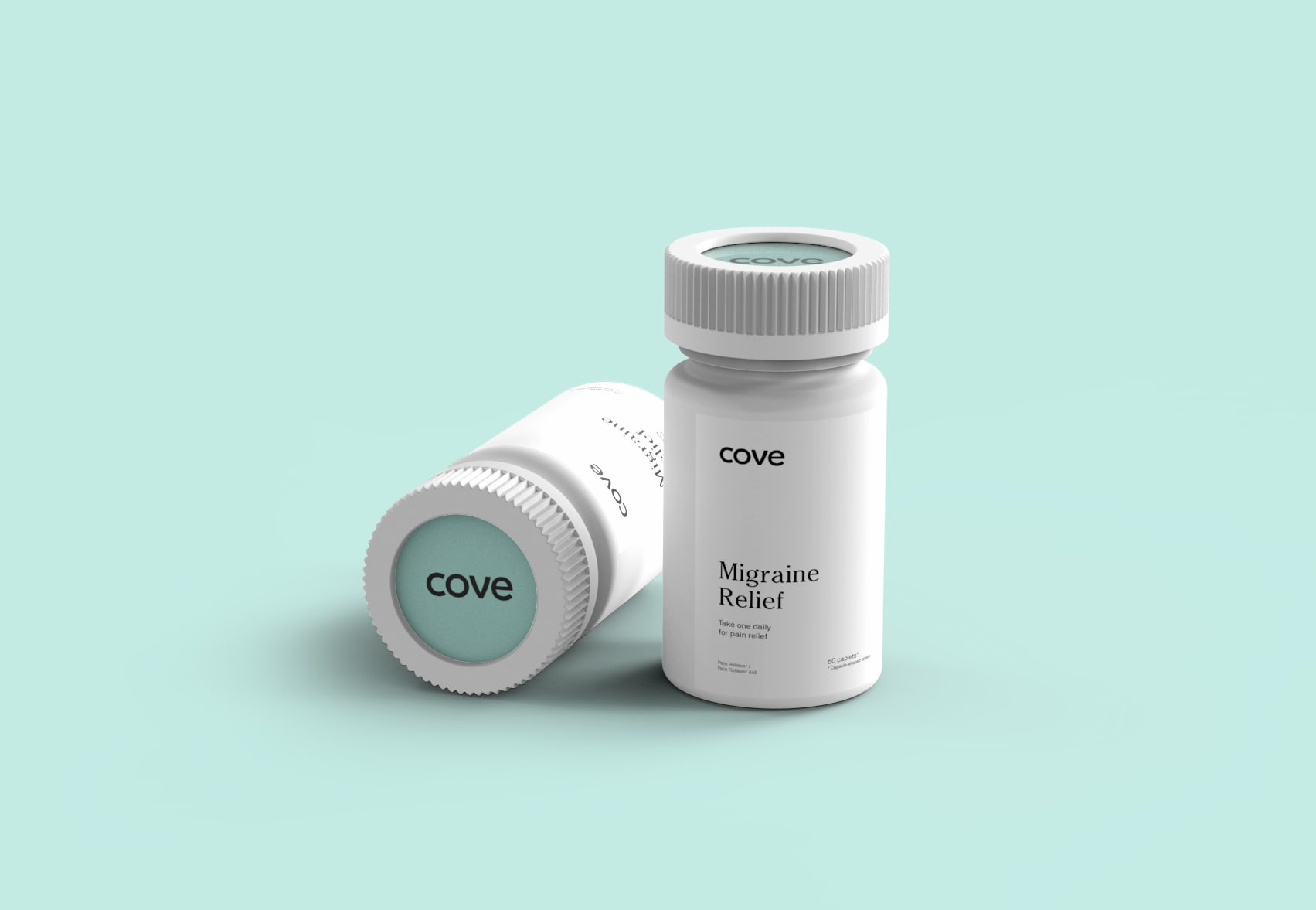From painful cramps to persistent nausea, there’s not a lot to love about getting your period. And when you add menstrual migraine on top of all that, things can get really unpleasant.
So how can you avoid having a terrible experience every month? You might not be able to totally escape migraine attacks (or your period), but there are steps you can take to ease your symptoms and get back to relaxing with your favorite feel-good show.
What is menstrual migraine?
First, let’s make sure we’re all on the same page about what “menstrual migraine” actually means. Menstrual migraine is a type of migraine that always happens just before or at the beginning of your period. Apart from that, they’re no different from any other migraine attacks, although they can be longer and more painful than non-menstrual attacks (ouch!).
What are some remedies I can use for menstrual migraine?
So, how can you keep migraine attacks from making the monthly ordeal of your period even worse? Well, the first step is understanding your treatment options.
Hot or cold compresses
Here’s an inexpensive remedy that’s effective at reducing migraine and menstrual pain: hot and cold compresses. For migraine pain, you’ll want to apply them to the base of your neck or your temples. Disposable ice packs, while not the most environmentally-friendly, can be kept by your bed instead of in the freezer so you can skip the trip to the kitchen while you’re in pain.
No matter how you use your compresses, be sure to use them in moderation: The National Headache Foundation suggests capping cold pack use at 15 minutes at a time, and heating pads can cause skin burns or even fires if you don’t keep an eye on them.
Ginger tea
As you may already know, various forms of ginger have been used to treat nausea for centuries, making it an appropriate choice for menstrual migraine. And while it doesn’t actually have to be tea to work, drinking something hot can be a soothing experience on its own.
As far as clinical research goes, the evidence for ginger’s effectiveness has been inconclusive. So while you may not see a massive impact from this home remedy, it probably won’t hurt to give it a try.
Essential oils
We’re sure we’re not the first people to suggest this popular remedy to you, but we should note that despite all the buzz, there isn’t a lot of evidence that most essential oils actually do anything for all of the conditions they’re purported to treat. That said, the research does suggest that some essential oils really can help relieve headaches, including lavender, peppermint, and chamomile.
So if you’re prone to hormonal headaches or migraine attacks, these oils may be a good place to start. They can be inhaled or applied topically using a roll-on stick applicator, like Cove's Essential Oil Roll-On. And like ginger, they’re pretty unlikely to do you any harm—as long as strong scents aren’t a trigger for you.
CBD
Here’s another option for migraine or period-induced nausea that’s a good choice for those who don’t mind trying a less-tested treatment. While there haven’t been any large-scale studies into whether or not CBD is effective for migraine pain in general yet, it has been shown to treat nausea.
If you’re going to try CBD, make sure you’re aware of the local laws in your state—most CBD products on the market right now aren’t being rigorously tested for safety (much less efficacy), so do your research before you buy anything.
Acupressure
Acupressure is all about applying pressure to specific points on your body, which is supposed to relieve pain, as well as nausea, anxiety, and even depression. While there isn’t much clinical evidence to back up all those claims, there’s plenty of anecdotal evidence that acupressure works, and it’s not harmful as long as you do it properly—check out our acupressure guide for some starter tips.
As a bonus, this treatment is totally free, and simple enough that you can probably manage it yourself (even when you’re on your period).
Birth control
This probably won’t be the first treatment you try, but if you’ve been dealing with menstrual migraine attacks for a while, it might be time to consider it. There’s a reason why you get hit with migraine attacks at the same time every month—the drop in estrogen levels that happens before your period is triggering those painful headaches. Although doctors aren’t entirely sure why this happens, the hormonal connection is clear.
Enter birth control: The same hormone-stabilizing effect that keeps you from getting pregnant also prevents that monthly estrogen drop, thereby sparing you the menstrual migraine (and your period, depending on which birth control you’re using).
Already feeling stressed thinking about scheduling an appointment with your doctor to get a birth control prescription? Skip the wait and get your birth control delivered to your door with Nurx.
One important caveat here: If you experience migraine with aura (vision changes, numbness and tingling, or speech disturbance), you probably shouldn’t take birth control that contains estrogen, because it might increase your risk of stroke. You may still be able to try a progestin-only birth control, so ask your doctor about your options if your migraine attacks come with aura.
Prescription medications
If you’d rather treat your migraine directly, there are multiple FDA-approved prescription medications that can help you. You can relieve attacks when they happen with acute treatments like triptans or NSAIDs. You can also try to prevent attacks from happening in the first place with anticonvulsants, antidepressants, beta blockers, or an anti-CGRP treatment. And there’s one type of medication that’ll certainly come in handy during your period and your migraine attacks: anti-nausea treatments.
We know this is a lot of information, and finding the right medication for your migraine can be tricky. A Cove doctor can recommend the best migraine treatment plan for all of your needs.
Supplements
Looking for a natural option to prevent menstrual migraine? Then supplements might be a better route for you. While ginger supplements can help with nausea (for the reasons mentioned above), riboflavin, CoQ10, and magnesium have the most clinical evidence for helping reduce the frequency and severity of migraine attacks (including hormonal ones). Magnesium supplements can also relieve symptoms of premenstrual syndrome (a.k.a. PMS).
This is far from an exhaustive list of everything that can help you deal with menstrual migraine attacks, but hopefully it’s a good resource as you get your shopping list started. The bottom line is that there are plenty of home remedies and useful products that can help relieve pain, nausea, and other symptoms, but there are few proven ways to prevent them in the first place.
The right birth control can help you avoid the worst symptoms of your period and your migraine attacks. Get started with Nurx today to find the best birth control for your needs.
You can also learn more about menstrual migraine by watching this webinar featuring Cove Medical Director Dr. Sara Crystal.
Disclaimer
The information provided in this article is not a substitute for professional medical advice, diagnosis, or treatment. You should not rely upon the content provided in this article for specific medical advice. If you have any questions or concerns, please talk to your doctor.
These statements have not been evaluated by the FDA. The supplements referenced are not intended to diagnose, treat, cure, or prevent any disease.
Photo by Allie Lehman via Death to Stock
The information provided in this article is not a substitute for professional medical advice, diagnosis, or treatment. You should not rely upon the content provided in this article for specific medical advice. If you have any questions or concerns, please talk to your doctor.
These statements have not been evaluated by the FDA. The supplements referenced are not intended to diagnose, treat, cure, or prevent any disease.
Photo by Allie Lehman via Death to Stock


